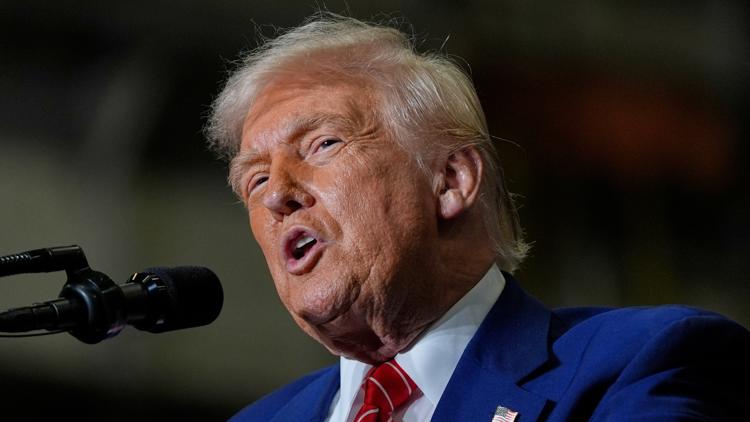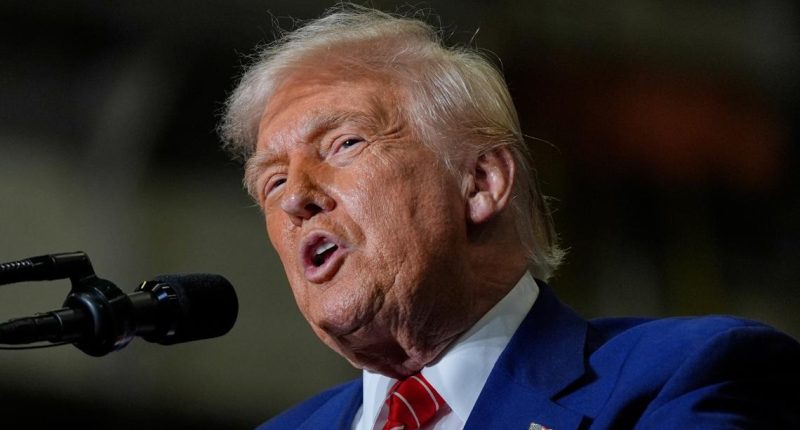Share this @internewscast.com

A provision of the bill could block states, including Florida, from enforcing some of their own AI laws for a decade.
ST. PETERSBURG, Fla. — As the Senate considers the Trump administration’s “One Big Beautiful Bill Act,” VERIFY is exploring its potential impact on state-level regulation of artificial intelligence.
A key component of the bill, detailed in Section 43201, plans to invest $500 million over the next ten years to upgrade and secure federal IT systems with the help of AI technology.
How will this affect Florida? The state has implemented various laws regulating artificial intelligence in recent years, so the question is: What changes will this new federal initiative bring to those existing regulations?
OUR SOURCES
WHAT WE FOUND
What the bill says
The AI-related section within the ‘Big Beautiful Bill’ gives $500 million to the U.S. Department of Commerce to “modernize and secure Federal information technology systems” by examining ways to incorporate artificial intelligence and automation.
Currently, there is no centralized federal oversight of AI in the United States, leaving states to craft and enforce their own policies. According to the National Conference of State Legislatures, at least 45 states — including Florida — have introduced AI-related bills in the 2024 legislative session.
If passed, the ‘Big Beautiful Bill’ could block states from enforcing their own AI-related laws that limit, restrict or regulate “AI models, systems or automated decision systems.” This ban would be in place for 10 years.
But there are exceptions:
- Laws that facilitate the use of AI
- Laws that are ‘generally applicable,’ meaning they apply to all technologies, not just AI
- Laws that charge AI firms certain fees in the same way that other companies are charged
- Laws that enforce criminal penalties for AI-related actions
Gov. Ron DeSantis commented on the proposal during a recent news conference where he signed a bill implementing harsher criminal penalties for AI-generated pornography.
“We’re not going to be able to police every aspect of it, right?” Gov. DeSantis said. “But there are going to be certain things where we’re going to need to provide protections for people so that their lives aren’t negatively impacted by the rise of AI.”
He acknowledged the need for the federal government to address artificial intelligence at the federal level but said there are some powers states should retain to be able to address concerns unique to local communities.
“They are trying to take away the ability of states to act in some of these spheres, but I think AI is really important that we retain that so we’re able to make some thoughtful calculations, but it is very difficult because of how rapidly it changes,” he said. “You could have the perfect solution today, and in six months, it is possible that the solution is obsolete.”
Florida laws that could be banned under the ‘Big Beautiful Bill’
There’s only one Florida law that appears to fall within the criteria of legislation that would be banned under the federal spending plan’s AI-related provision.
House Bill 919 was passed in 2024, and it regulates the use of AI in political advertising by requiring disclosures of AI use and imposing criminal penalties for noncompliance.
This law might survive under the 10-year ban if it only applies to content that is accessible within Florida. That’s because the provision of the bill says “no State…may enforce…any law…regulating [AI] entered into interstate commerce.”
If the state of Florida can prove that AI-generated content in political ads is not interstate commerce, the law might survive.
Florida laws that would likely survive under the ‘Big Beautiful Bill’
The other laws in Florida that have to do with AI likely have a better chance at survival under the 10-year ban because they fall within one or more of the exceptions.
House Bill 1361 provides grant money to school districts that seek to implement AI for student learning and teacher support, which helps facilitate the use of AI. It also doesn’t force schools to implement AI because it is an offered incentive, not a mandate.
Senate Bill 1680 created criminal penalties for creating and possessing AI-generated child pornography, fitting under one of the exceptions.
House Bill 757 was passed one year later and harshened those penalties and specifically targets the harmful use of AI, not AI itself.
Senate Bill 7018 created a Health Care Innovation Council to promote new technologies, as well as a loan program to help health care entities put those new technologies into place. It doesn’t impose requirements and is voluntary.
The bigger picture
“Any time the federal government tells the states what they can and cannot do, that’s a component of federalism,” Bitzer said. “Oftentimes, that might get challenged in court by various states.”
This is not the first time the federal government has used legislation to push states toward uniform standards. Bitzer pointed to the 1984 decision to raise the national drinking age to 21 as an example.
“The federal government said, ‘If you want federal highway funds for your interstate highways, you have to raise your drinking age from 18 to 21,’” Bitzer explained.
If the AI provision in the “Big Beautiful Bill” passes, states could respond through the courts, he said.
“States can go into court and challenge any federal policy they disagree with,” he said. “Some states may say, ‘We want the power to oversee AI within our borders — we’re going to challenge this in federal court.’”
With more AI legislation expected in both statehouses and Congress, this battle over jurisdiction may only be beginning.

















